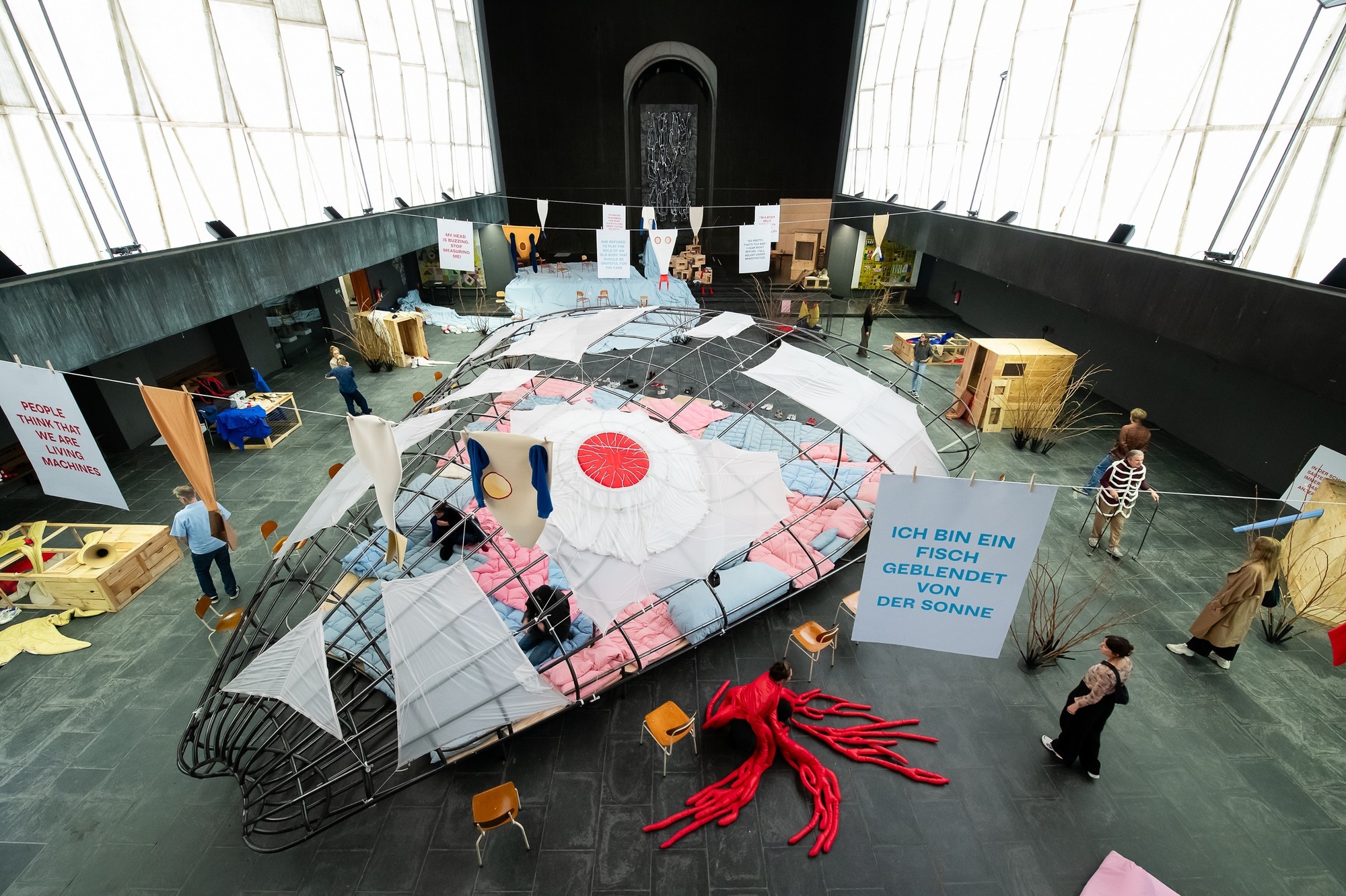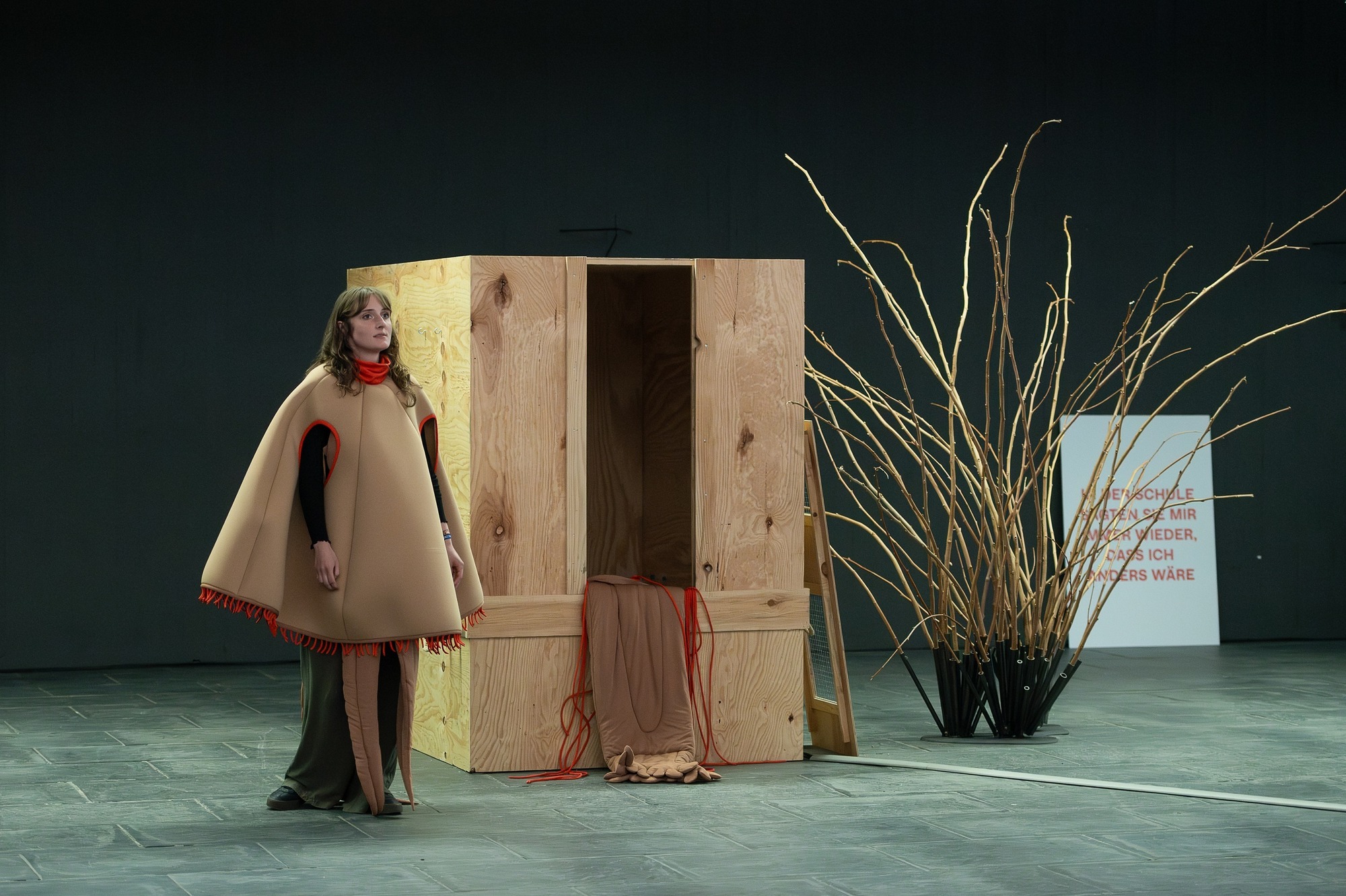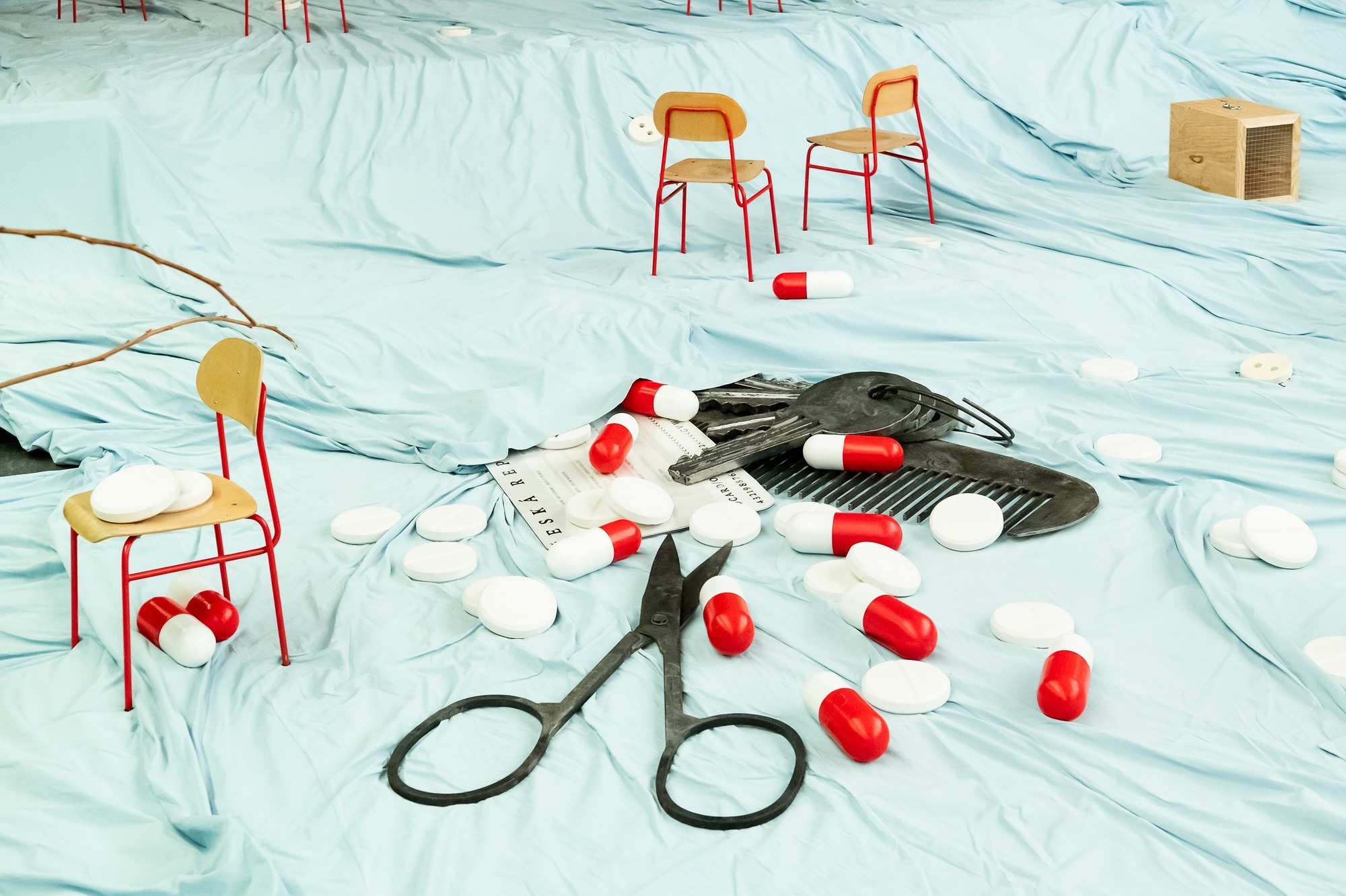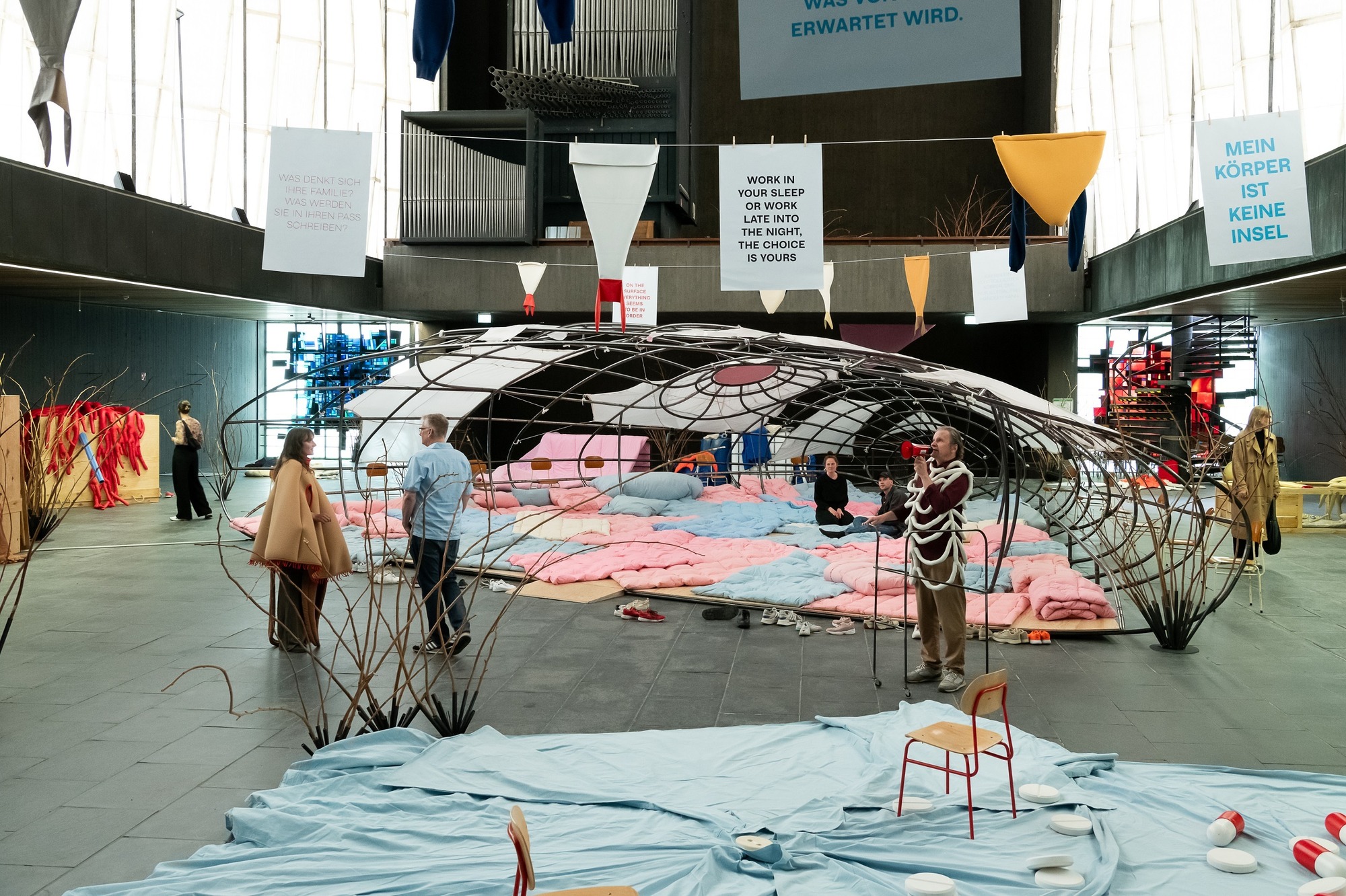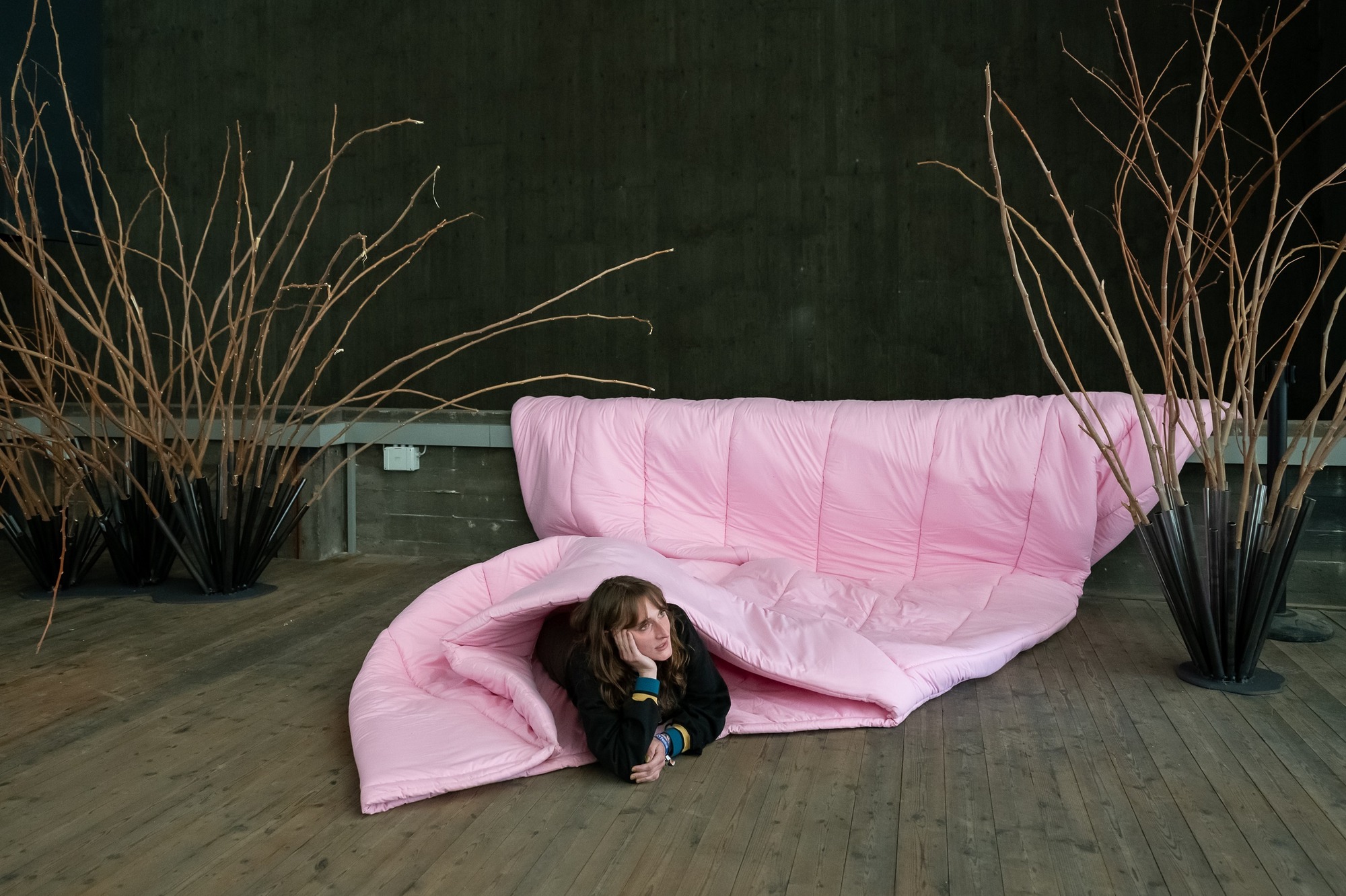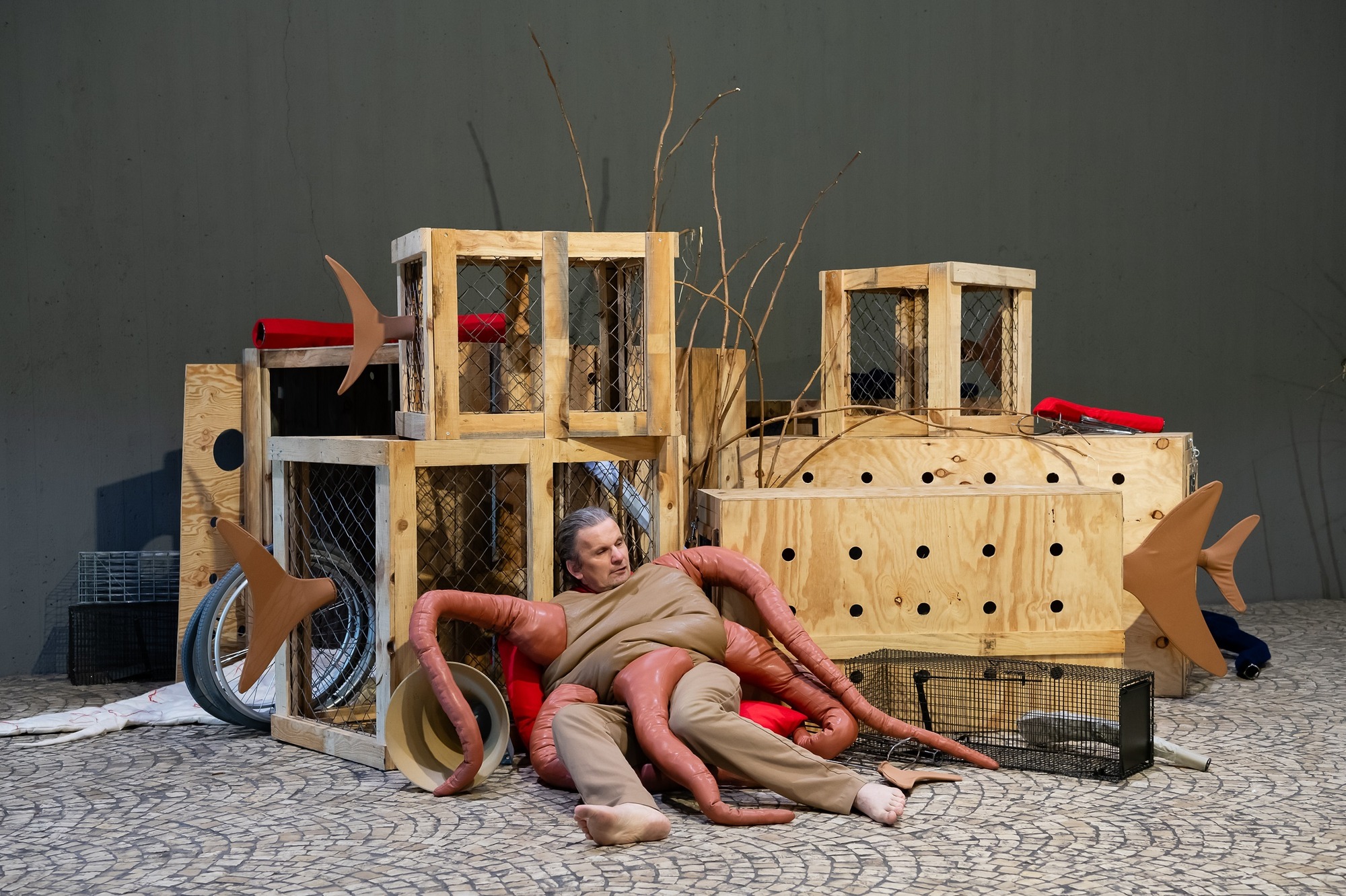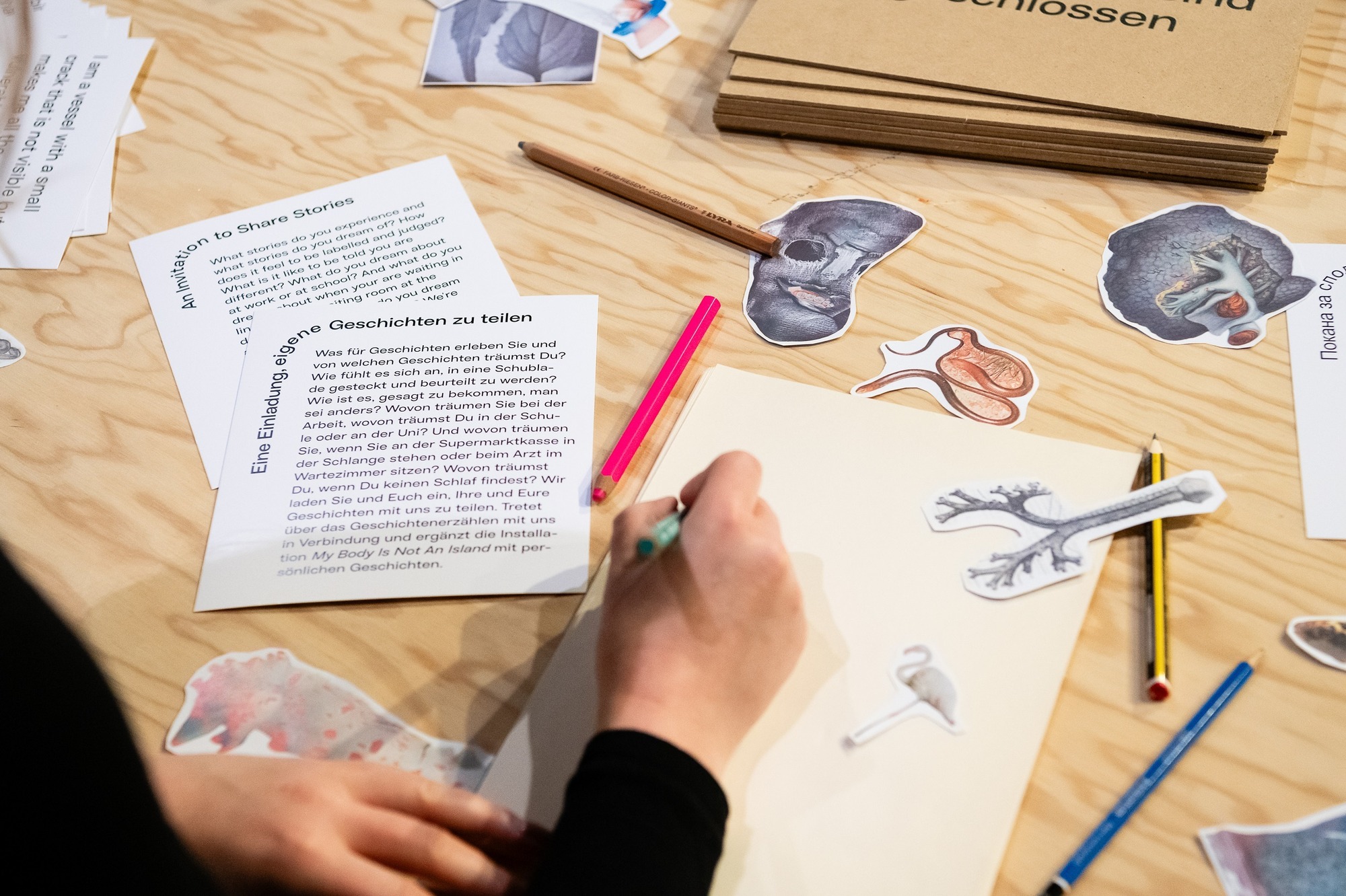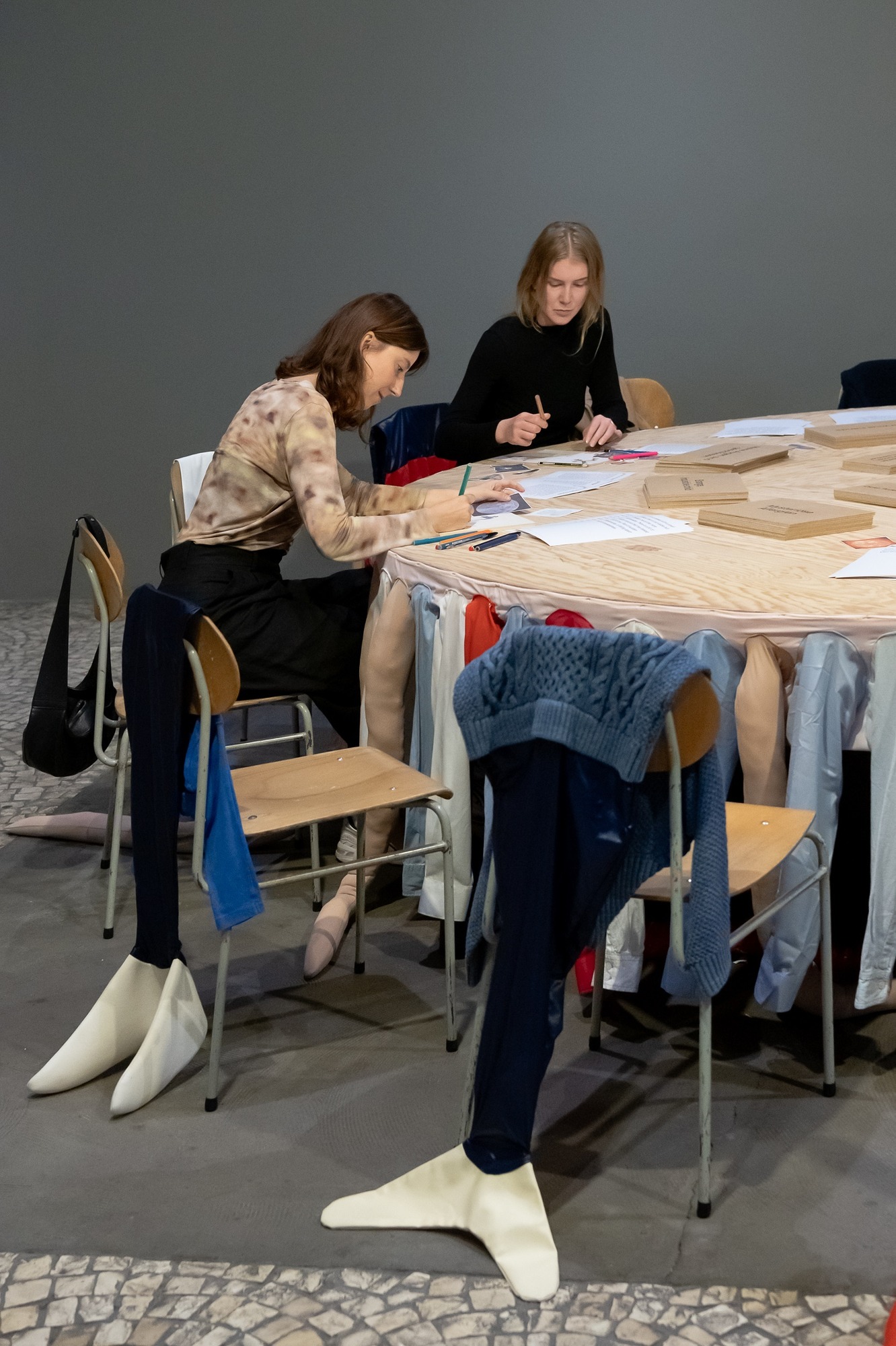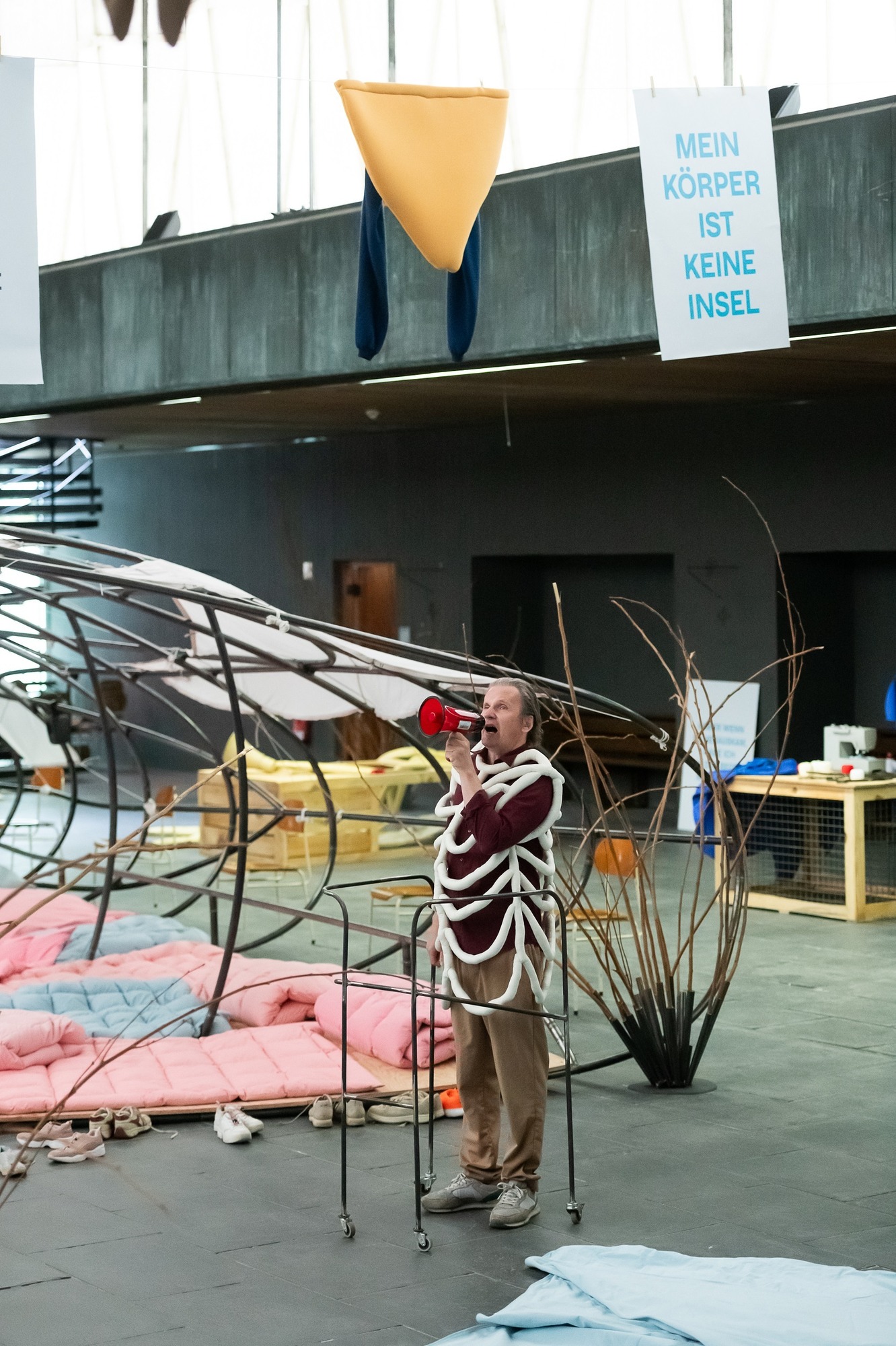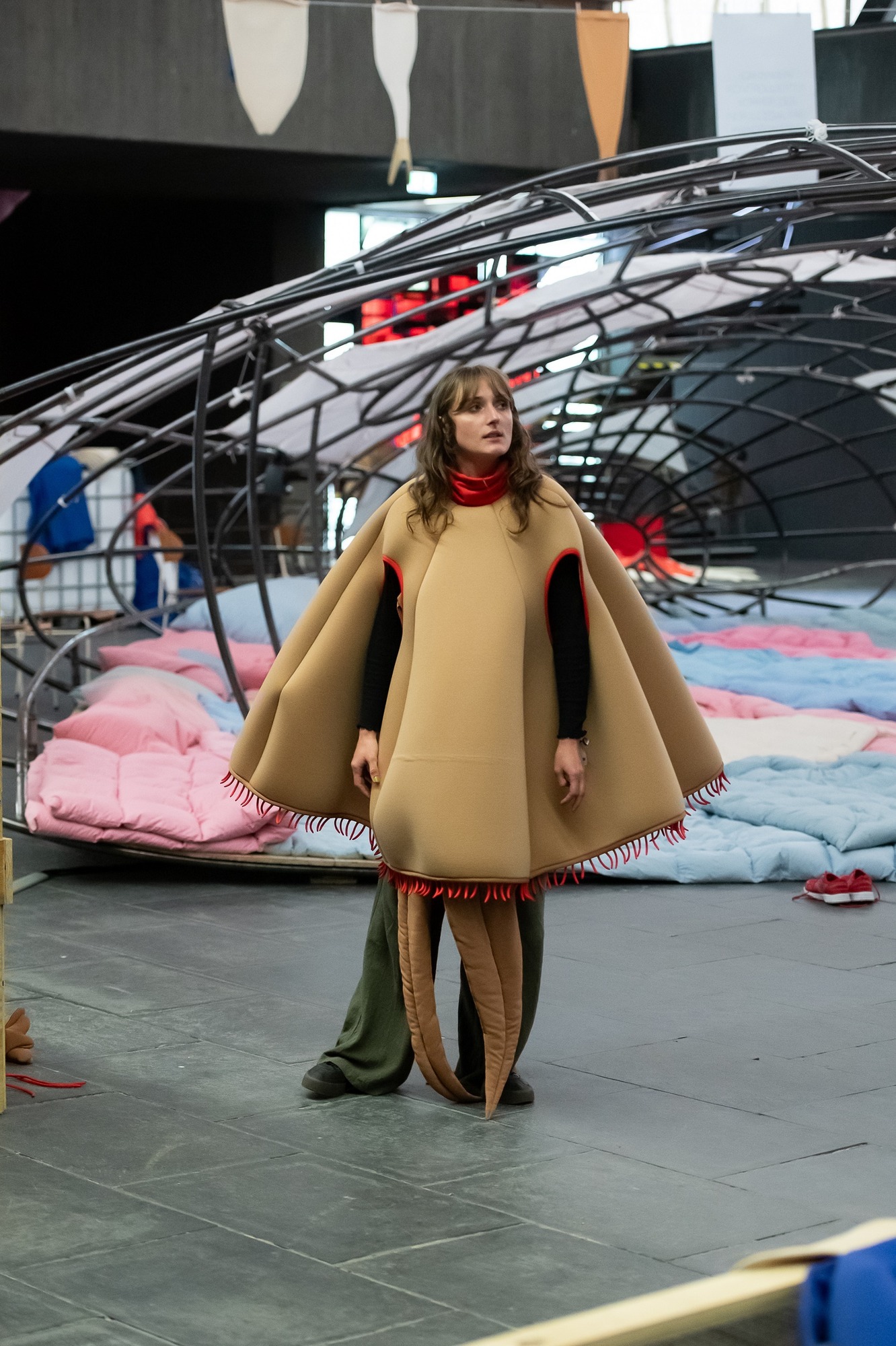Eva Koťátková
My Body Is Not An Island
12 Aug - 23 Sep 2023
In her installation My Body Is Not An Island, Czech artist Eva Koťátková brings the idea of a collective body to life. Including all the political implications that go with it, first and foremost the question: How do we take care of each other? Who speaks and is heard and who remains invisible or is silenced? Various elements - objects, texts, language, sounds and performances – are combined to create a multidimensional collage dedicated to the sharing of stories, which itself tells a story: It reveals a huge, fragmented body, half fish, half human.
A welded steel sculpture, in the form of a walk-in head, invites visitors to linger and listen; at other stations, pieces of clothing, colorful costumes, and wooden transport crates form a diverse, immersive landscape. Many stories, told from human and non-human perspectives, deal with traumatic experiences of physical and psychological oppression and are based on a collection of stories assembled over decades by the artist. This collection is expanded by drawings, collages and texts by the visitors. In dialogue with the spectacular post-war architecture of the former Catholic Liebfrauen parish church in downtown Duisburg, which was deconsecrated in 2010, a poetic, at times dreamlike site is created that nonetheless stimulates an examination of social realities, calls for empathy and critical imagination, and encourages us to resist the prevailing normative pressure on our bodies.
The Ruhr Area is the third stop of the exhibition, which was on view at CAPC Bordeaux in 2022 and at the National Gallery in Prague until June of this year. The journey through the different institutional spaces has changed the fish-human being, the collective body has grown by thousands of new stories, but also reveals an increasing fragmentation: In Duisburg, the tail fin of the fish is imagined to be in the inland harbor, which is within walking distance. By moving between the two locations of the exhibition, the visitors collectively create the missing body of the fish. The metaphor of the fish out of water thus acquires a direct connection to public space and, as a situation between life and death, a great urgency.
Eva Koťátková (*1982) is co-founder of the platform Institute of Anxiety, which creates a space for collaboration between artists, theorists, and activists. For the 60th Venice Art Biennale in 2024 she will design the Czech national pavilion. The invitation by Britta Peters, artistic director of Urbane Künste Ruhr, follows the exhibition project Ruhr Ding: Schlaf (5.5. - 25.6.2023), which took place in early summer 2023 and was dedicated to the human relationship to body and time in a post-industrial context.
A contribution by Urbane Künste Ruhr for Ruhrtriennale 2023.
Curated by Britta Peters
A welded steel sculpture, in the form of a walk-in head, invites visitors to linger and listen; at other stations, pieces of clothing, colorful costumes, and wooden transport crates form a diverse, immersive landscape. Many stories, told from human and non-human perspectives, deal with traumatic experiences of physical and psychological oppression and are based on a collection of stories assembled over decades by the artist. This collection is expanded by drawings, collages and texts by the visitors. In dialogue with the spectacular post-war architecture of the former Catholic Liebfrauen parish church in downtown Duisburg, which was deconsecrated in 2010, a poetic, at times dreamlike site is created that nonetheless stimulates an examination of social realities, calls for empathy and critical imagination, and encourages us to resist the prevailing normative pressure on our bodies.
The Ruhr Area is the third stop of the exhibition, which was on view at CAPC Bordeaux in 2022 and at the National Gallery in Prague until June of this year. The journey through the different institutional spaces has changed the fish-human being, the collective body has grown by thousands of new stories, but also reveals an increasing fragmentation: In Duisburg, the tail fin of the fish is imagined to be in the inland harbor, which is within walking distance. By moving between the two locations of the exhibition, the visitors collectively create the missing body of the fish. The metaphor of the fish out of water thus acquires a direct connection to public space and, as a situation between life and death, a great urgency.
Eva Koťátková (*1982) is co-founder of the platform Institute of Anxiety, which creates a space for collaboration between artists, theorists, and activists. For the 60th Venice Art Biennale in 2024 she will design the Czech national pavilion. The invitation by Britta Peters, artistic director of Urbane Künste Ruhr, follows the exhibition project Ruhr Ding: Schlaf (5.5. - 25.6.2023), which took place in early summer 2023 and was dedicated to the human relationship to body and time in a post-industrial context.
A contribution by Urbane Künste Ruhr for Ruhrtriennale 2023.
Curated by Britta Peters

